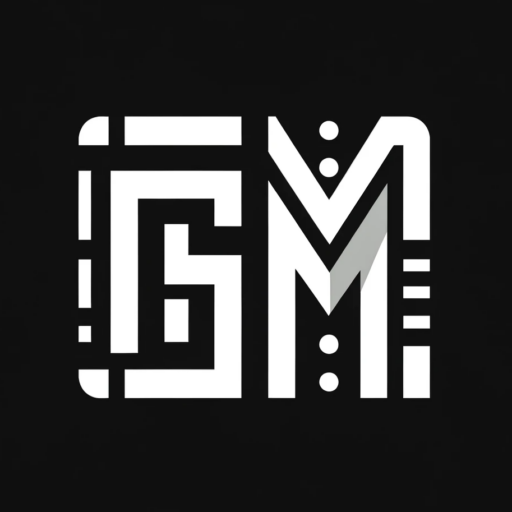The biggest bet in tech right now isn’t a deliberate decision, but rather the result of company cultures that were a benefit until they weren’t. The result? Apple and Amazon will miss AI like Intel missed mobile.
Tim Cook and Andy Jassy “CEOs of Apple and Amazon” both agree that AI is a paradigm shift, “as big or bigger than the internet.”
But the strategies their companies are betting on (which they both doubled down on in their latest earnings calls!) imply that AI will be a commodity rather than a paradigm shift.
For example, Amazon’s strategy is predicated on the assumption that AI will be a commoditized market like cloud and they’ll build their moat through other means, like data gravity (e.g. companies having everything at AWS).
Apple has similar assumptions, which is why they’ve invested relatively little in AI. Apple reminds me of 2000s Microsoft here when they believed Windows would remain at the center of everything, which killed them in mobile. Apple believes the phone will remain at the center of everything.
The speed AI is moving is unprecedented, which is anathema to Apple’s culture and doubly bad for Amazon because they actually are fast, but speeding in the wrong direction.
Why follow such an obviously bad strategy?
Well, they kind of have to. Textbook innovator’s dilemma.
Amazon & AWS
Amazon’s AWS is predicated on the idea of commoditized infrastructure at scale where price is the priority. But with AI, quality/performance is the priority. That’s why we see so many new AI startups and use cases lighting up as AI improves and finally becomes ‘good enough’ for new use cases. It bends the curve and price becomes secondary until quality stops improving (not any time soon, if ever).
Further, Google is much better positioned than Amazon to play that game with their TPUs and best-in-class models. We’re already seeing the paradigm shift with new players like Vercel and Lovable, AI-native infrastructure platforms built for this new era.
Apple
Apple’s business is predicated on the iPhone being at the center of everything. Over 50% of their revenue comes directly from iPhone sales.
Another 25% of Apple’s revenue is services, most of which I’d argue is also dependent on iPhone sales. That puts ~75% of Apple’s revenue dependent on one product: the iPhone, which was the result of the paradigm shift to mobile + cloud (especially for services).
But now there’s a new paradigm shift. The iPhone was perfect for the mobile era, which is why it hasn’t changed much over the last decade.
AI unlocks what seems to be the future: dynamic, context-dependent generative UIs or something similar. Why couldn’t my watch and glasses be everything I need?
Regardless of what the final form factor ends up being, there’s no doubt spending our lives hunched over staring at a piece of glass in our hand is suboptimal.
The other problem is that at its core, AI is two things: 1) software and 2) extremely fast-moving/evolving, two things Apple is bad at. The worst case for Apple is that AI (software) becomes the most important thing (e.g. due to memory/customization) and hardware becomes the commodity.
The real problem: Runaway markets
But Amazon and Apple are huge, with hefty cash flows and huge balance sheets. They can just build/buy/partner their way back to relevance as last movers, right?
Wrong. The AI winners will be so much further ahead by then they’ll get a bad deal. We already saw it with Apple, they’re having a hard time partnering on their own terms following the failure of Apple Intelligence. Where 12-18 months ago they would’ve had 100X better terms/opportunities.
And that’s if they changed today. It’ll likely be quarters, if not years, before they realize their strategy isn’t working (e.g. Intel.). Such is the innovator’s dilemma.
Plan B: Changing the game > changing culture?
It’s often easier to change the game than to change your culture. A good example is Google in the early cloud race. AWS was running away with the market, and Google wasn’t going to catch up by out-AWS-ing AWS. So they launched Kubernetes.
Kubernetes didn’t flip the market, but it weakened the AWS moat and kept Google in the race. If Apple or Amazon could pull off something similar in AI (like Amazon creating the dominant open standard or Apple owning the primary AI interface) they could reset the board. The problem? They’re already too far behind: Nvidia owns the platform and OpenAI owns the general consumer interface, and their leads are only increasing.
The benefit & burden of culture
A company’s culture is a benefit until it isn’t. It’s what differentiates you until it kills you. It’s why you win until it’s why you lose.
But we all already knew that, so why does this keep happening? Because it happens slowly, then all at once. It often feels like you have no choice, especially if the CEO is a manager and not a founder, because founders are often the only ones who can make such impossibly hard decisions to kill cash cows while the milk is still flowing.
Place your bets
History says Apple and AWS have sealed their own fates by doubling down on their existing strategies. Interestingly, Intel still reached new highs for a decade after missing mobile before it all collapsed. But now we’re moving at the speed of AI, so we’re likely to see the truth much faster.
